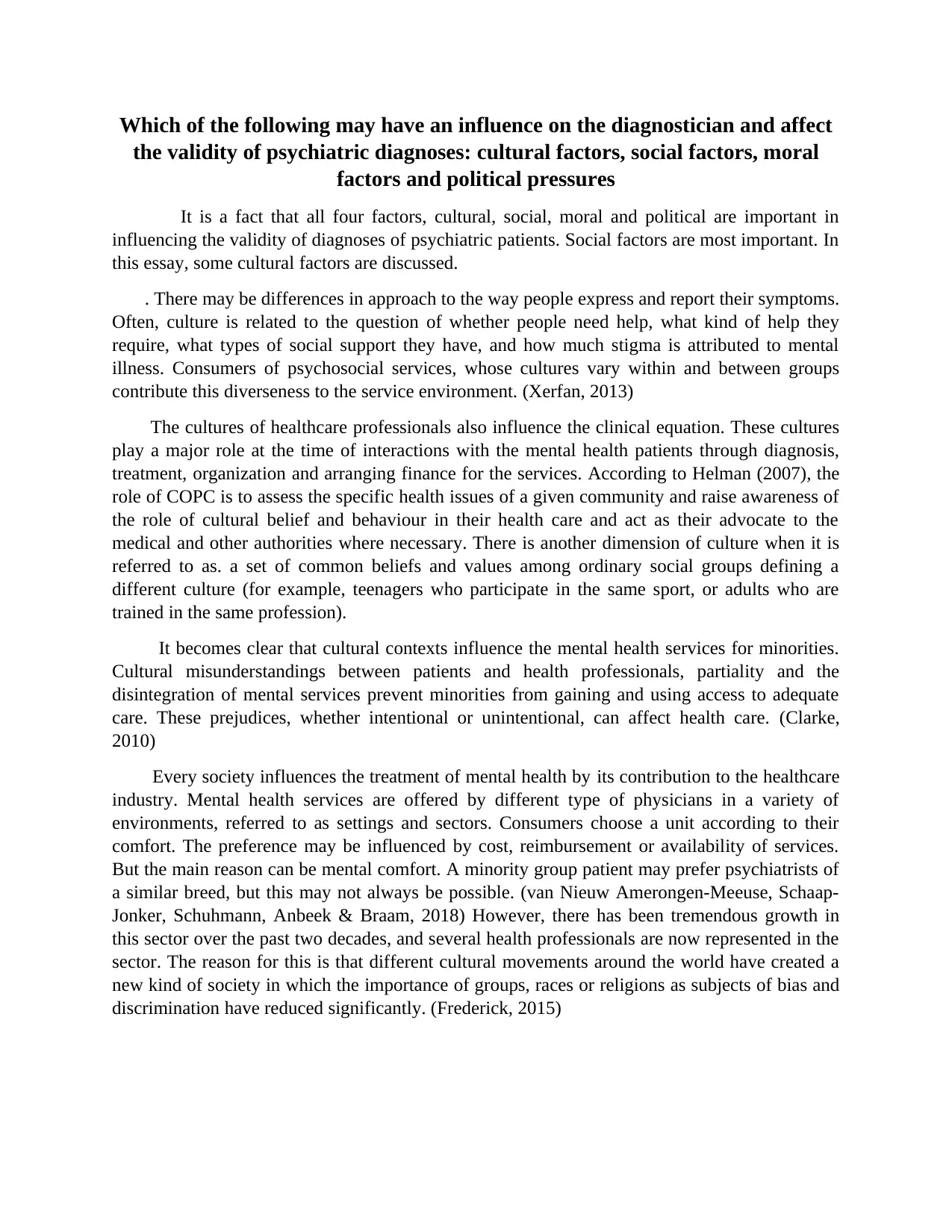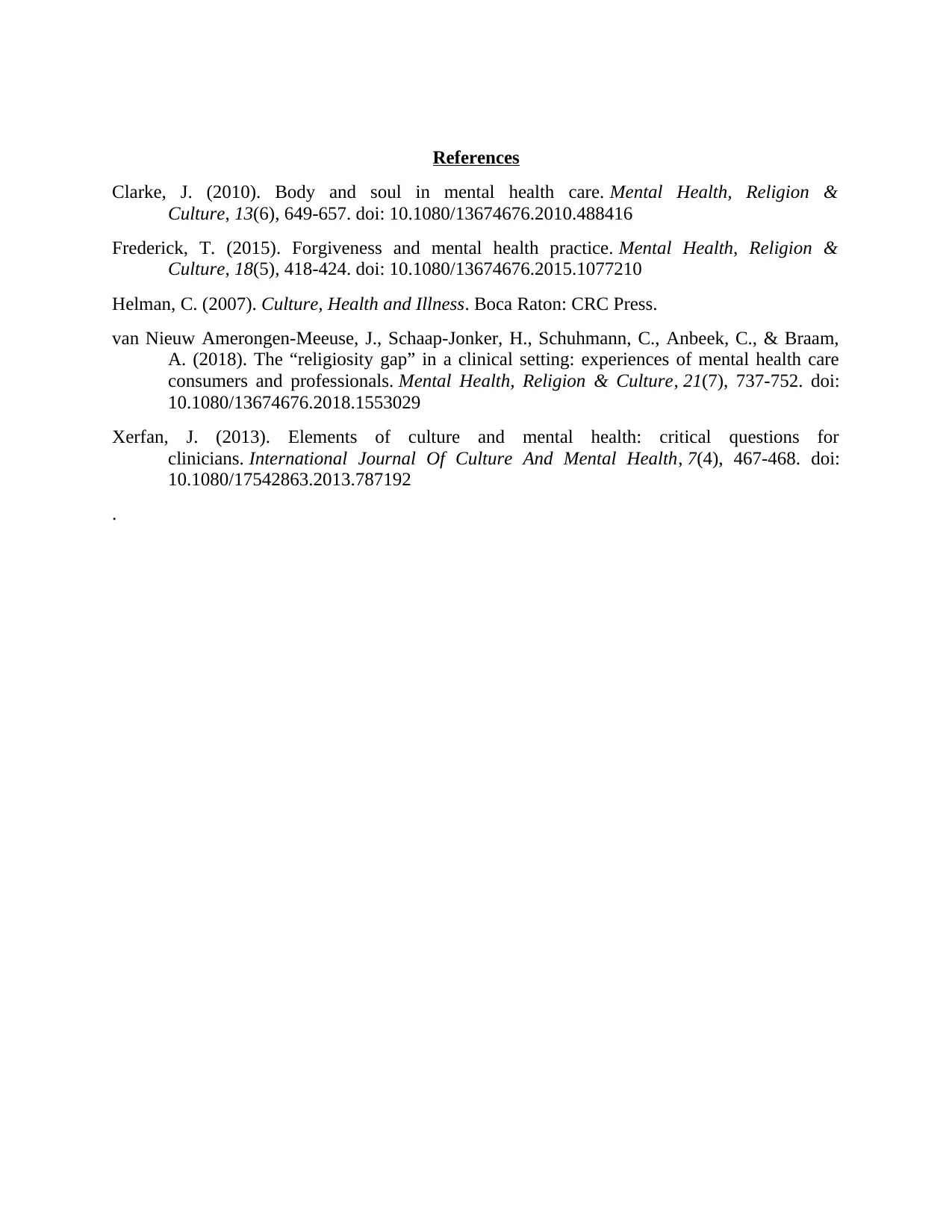Exploring the Influence of Cultural Factors on Psychiatric Diagnoses
VerifiedAdded on 2023/04/25
|2
|713
|191
Essay
AI Summary
This essay examines the significant influence of cultural factors on the validity of psychiatric diagnoses. It highlights how cultural differences in expressing and reporting symptoms, access to social support, and attitudes toward mental illness impact the diagnostic process. The essay discusses the role of both patient and healthcare professional cultures, emphasizing how cultural misunderstandings and biases can hinder access to adequate mental health care, particularly for minority groups. It references studies by Xerfan (2013), Helman (2007), Clarke (2010), van Nieuw Amerongen-Meeuse et al. (2018), and Frederick (2015) to support its arguments, illustrating how societal and cultural contexts shape mental health services and influence patient preferences for care. The essay emphasizes the need to consider cultural contexts to ensure accurate and equitable psychiatric diagnoses and treatment.
1 out of 2








![[object Object]](/_next/static/media/star-bottom.7253800d.svg)